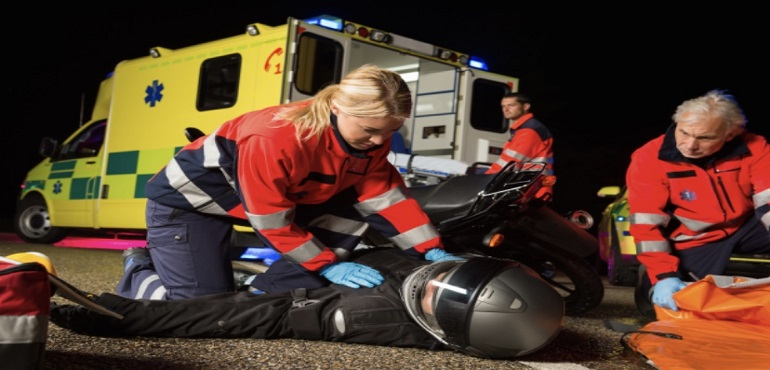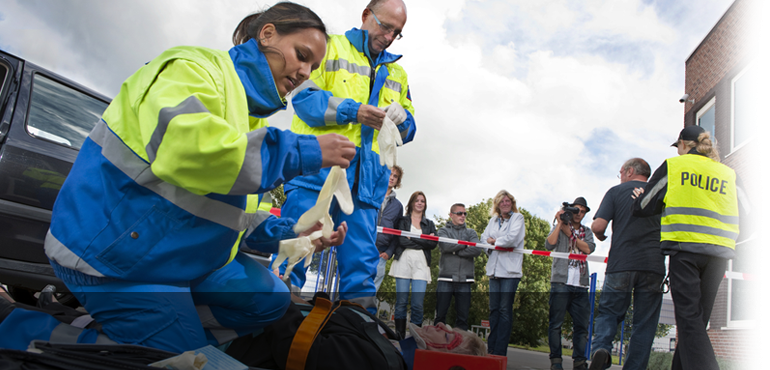| Toll Free : 1844 495 7333(injury hotline- new cases only) | |
| Text a Personal Injury Lawyer 24/7 and get instant help.TM (416 931 5015) | |
| Head Office : 905 495 7333 |
Accidents Caused By Road Debris : Whose Responsibility?
July 24, 2017Brampton personal injury lawyers often deal with cases where people are injured in collisions involving debris on the road.
The December 2015 incident on Highway 401 in Pickering, where a woman driver was critically injured by metal debris falling off a tow truck and piercing her car’s windshield, has brought the serious issue of damage caused by falling debris into focus.
In this particular incident, , a long piece of metal, used to connect vehicles by tow truck operators, caused damage to at least four other vehicles on the highway, as it kicked up and was tossed on to oncoming vehicles repeatedly.
Accidents caused by road debris are more common than we think. The American Automobile Association’s Foundation for Traffic Safety has provided startling figures revealing that a huge number of motor-vehicle accidents are directly caused by road debris. The Foundation estimates that nearly 25,000 collisions are caused on North American roads each year due to scrap metal, road gators, garbage etc.
If you or a dear one has been injured in a collision caused by road debris, contact the nearest Brampton car accident lawyer with experience in dealing with such cases. You may be entitled to compensation.
Causes of Falling Debris Accidents
Trucks and trailers transport different items that include cars, motor-cycles, gravel/sand, cement/concrete, flammable liquids, oil, milk, frozen food, animals, rocks and stones, logs, hazardous chemicals and gases, fruit and vegetables, poultry, eggs, water, metal, etc. Motorists on highways who travel at high speeds least expect such debris to be lying on the tarmac or to fall off over-loaded trucks in front of them. They can cause a variety of injuries and damage ranging from cracked windshields, burns, toxic fumes, serious injury to drivers and passengers besides causing multi-vehicle pile-ups and collisions.
The actual weight of the items may not cause damage but the impact, velocity and speed with which they strike can certainly cause extensive damage to people and vehicles following them. Trucks on highways usually travel at speeds upwards of 60mph and they may have warning signs that caution vehicles following them to keep a 200m gap.
Who Is Responsible?
Drivers of trucks with/without trailers are responsible for their vehicle and load. They must ensure that the load is:
- secured properly
- within the weight and height restrictions
- will not shift during transportation.
Sharp turns and sudden stops can cause the load to shift and the driver must be ever alert.
Commercial trucks are more liable to lose their cargo due to faulty securing, but private vehicles, smaller trucks, pick-ups and minivans transporting goods may also not have their load properly secured.
Ontario has very strict guidelines about operating a vehicle without secure load ranges, with fines ranging between $130-310, based on whether the vehicle is commercial or personal. The Highway Traffic Act deems that loads that over-hang the back of vehicles by more than 1.5m should be marked by a red flag, red marker or red light, based on time of travel and the ambient light.
If you have suffered injuries in such an accident, a thorough investigation into the circumstances can help fix the liability clearly and help you get the compensation you rightly deserve.
Accidents Caused By Road Debris : Whose Responsibility?
July 24, 2017Brampton personal injury lawyers often deal with cases where people are injured in collisions involving debris on the road.
The December 2015 incident on Highway 401 in Pickering, where a woman driver was critically injured by metal debris falling off a tow truck and piercing her car’s windshield, has brought the serious issue of damage caused by falling debris into focus.
In this particular incident, , a long piece of metal, used to connect vehicles by tow truck operators, caused damage to at least four other vehicles on the highway, as it kicked up and was tossed on to oncoming vehicles repeatedly.
Accidents caused by road debris are more common than we think. The American Automobile Association’s Foundation for Traffic Safety has provided startling figures revealing that a huge number of motor-vehicle accidents are directly caused by road debris. The Foundation estimates that nearly 25,000 collisions are caused on North American roads each year due to scrap metal, road gators, garbage etc.
If you or a dear one has been injured in a collision caused by road debris, contact the nearest Brampton car accident lawyer with experience in dealing with such cases. You may be entitled to compensation.
Causes of Falling Debris Accidents
Trucks and trailers transport different items that include cars, motor-cycles, gravel/sand, cement/concrete, flammable liquids, oil, milk, frozen food, animals, rocks and stones, logs, hazardous chemicals and gases, fruit and vegetables, poultry, eggs, water, metal, etc. Motorists on highways who travel at high speeds least expect such debris to be lying on the tarmac or to fall off over-loaded trucks in front of them. They can cause a variety of injuries and damage ranging from cracked windshields, burns, toxic fumes, serious injury to drivers and passengers besides causing multi-vehicle pile-ups and collisions.
The actual weight of the items may not cause damage but the impact, velocity and speed with which they strike can certainly cause extensive damage to people and vehicles following them. Trucks on highways usually travel at speeds upwards of 60mph and they may have warning signs that caution vehicles following them to keep a 200m gap.
Who Is Responsible?
Drivers of trucks with/without trailers are responsible for their vehicle and load. They must ensure that the load is:
- secured properly
- within the weight and height restrictions
- will not shift during transportation.
Sharp turns and sudden stops can cause the load to shift and the driver must be ever alert.
Commercial trucks are more liable to lose their cargo due to faulty securing, but private vehicles, smaller trucks, pick-ups and minivans transporting goods may also not have their load properly secured.
Ontario has very strict guidelines about operating a vehicle without secure load ranges, with fines ranging between $130-310, based on whether the vehicle is commercial or personal. The Highway Traffic Act deems that loads that over-hang the back of vehicles by more than 1.5m should be marked by a red flag, red marker or red light, based on time of travel and the ambient light.
If you have suffered injuries in such an accident, a thorough investigation into the circumstances can help fix the liability clearly and help you get the compensation you rightly deserve.








